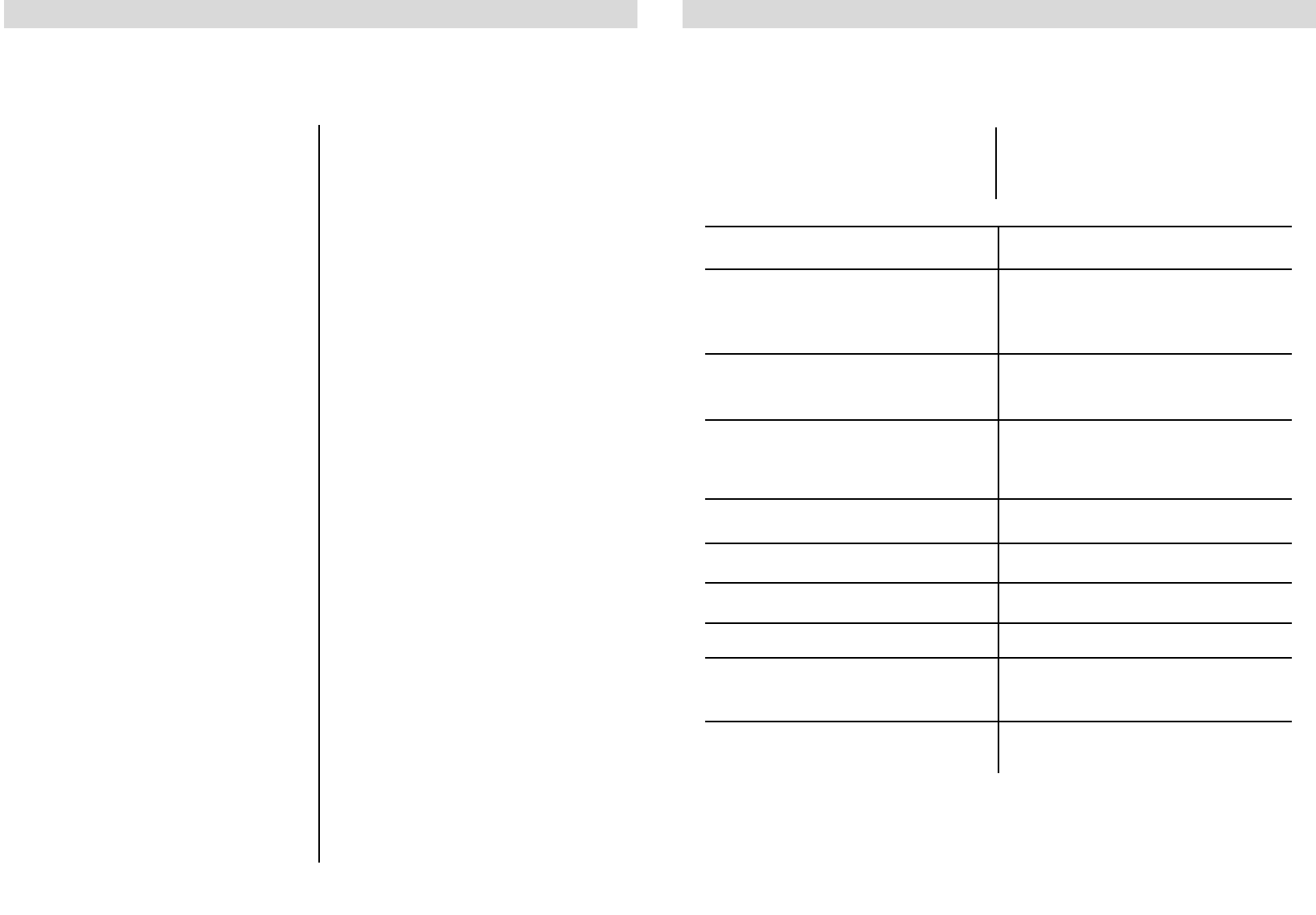
QN 4021 / QN 4039
7
Place the cookware in the microwave
along with a glass half full of water. Heat
on maxixmum power level for one minute.
If the cookware feels hot, you should not
use it.If it is just slightly warm, you can use
it for reheating but not for cooking. If the
dish is room temperature, it is suitable for
microwave cooking.
Suitability of cookware
X suitable - non suitable
1)
excluding silver, gold, platinum or metal decoration
2)
does not include glaze containing metal
Ovenware material Suitability
Ovenproof glass and ceramic dishes
(without any metal parts, e.g. Pyrex, X
oven-to-tableware, pie dish)
Non ovenproof glass and porcelain X
(e.g. table crockery
1)
Glass ceramic and vitroceramic
made of fire/frostproof material X
(e.g. Arcoflam)
Ovenproof earthenware
2)
X
Plastic, heat-resistant up to 200°C X
Paper, cardboard X
Cling film X
Metal roasting pans, e.g. enamel
-
or cast-iron dishes
Black-lacquered or silicone
coated baking tins
-
QN 4021 / QN 4039
6
Utensil & food safety
• During delayed boiling, the boiling tem-
perature is attained without the typical
steam bubbles rising. When the contai-
ner is shaken, even gently, the liquid
may then suddenly vigorously boil over
or spurt - with the risk of scalding the
user. To prevent liquids from boiling
over and possible burns, whenever
heating liquid, please place a teaspoon
in the container and wait 20 seconds
before removing the containers from
the appliance or adding anything to the
liquid, to avoid sudden spurting of the
liquid.
• WARNING : Be sure to remove the cap
or lid before cooking foods or heating
liquids in a sealed bottle or container,
which could otherwise explode.
• Make sure that a minimum temperature
of 70°C is attained for the cooking /
heating of food. Never use a mercury or
liquid thermometer for measuring the
temperature of the food.
• Baby food in jars or bottles should
always be heated without a lid or top,
and well stirred or shaken after heating,
to ensure uniform distribution of the
heat. Always check the temperature
before feeding to your child in order
to avoid scalding.
• The hot food in a microwave oven will
heat up the ovenware. For this reason
always use oven gloves for handling
hot dishes.
• Never cook your food for too long or at
too high a power setting.Some areas of
the food can dry out or even ignite.
• To protect the appliance against corro-
sion from moisture (condensation) in
the cavity or on the door, wipe these
areas dry after each use.
• Do not use porcelain or ceramic croc-
kery, or porous earthenware (e.g. on
the handles or unglazed bases) in your
microwave as these types of dishes can
absorb moisture from the food as it is
cooking. This can cause vapour pres-
sure to build up which could shatter the
dish.
• Food with «skin» or «peel», such as
potatoes, tomatoes, sausages, and the
like, should be pierced with a fork so
that any steam present can escape and
the food will not burst.
Do not use your microwave oven for
the following :
• The heating or cooking of boiled, coddled
eggs or fried eggs by microwave is pro-
hibited. They can burst and cause
serious burns or irreparable damage to
your oven.
• to heat large quantities of cooking oil
(fondue or deep frying) and drinks
containing a high percentage of alcohol
- there is danger of spontaneous
combustion!
• to heat unopened cans, bottles, etc.
• to dry animals, textiles or paper.

















